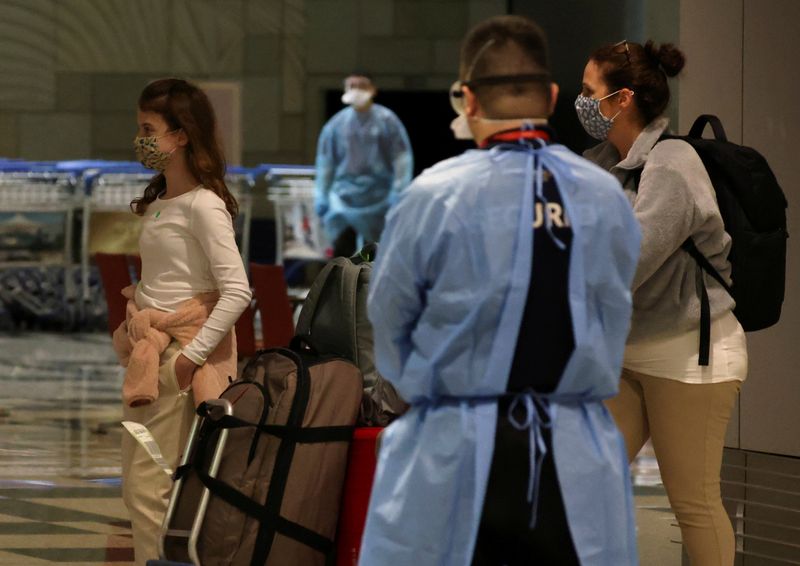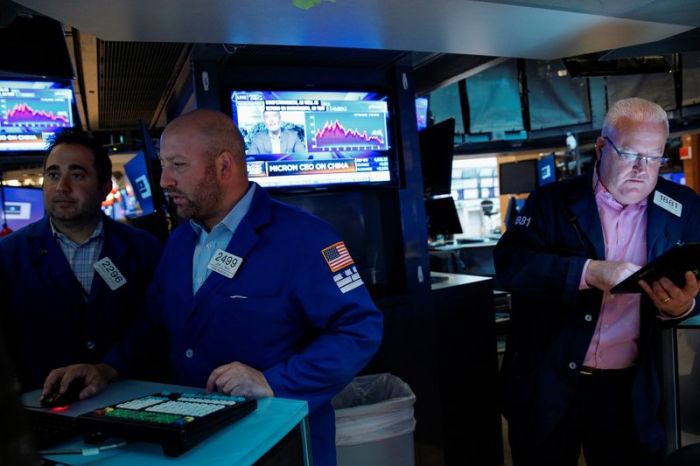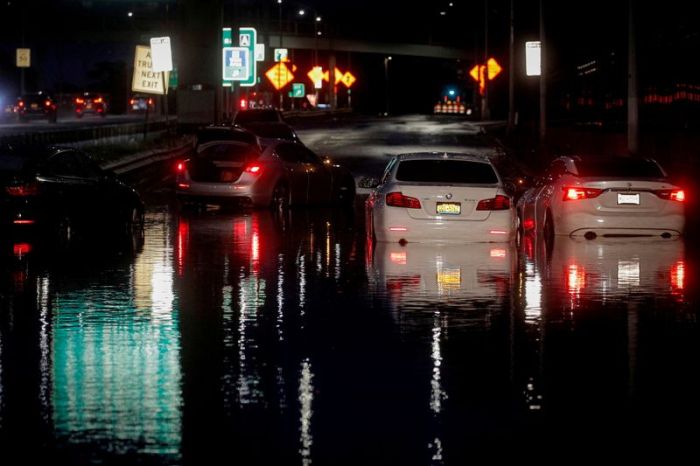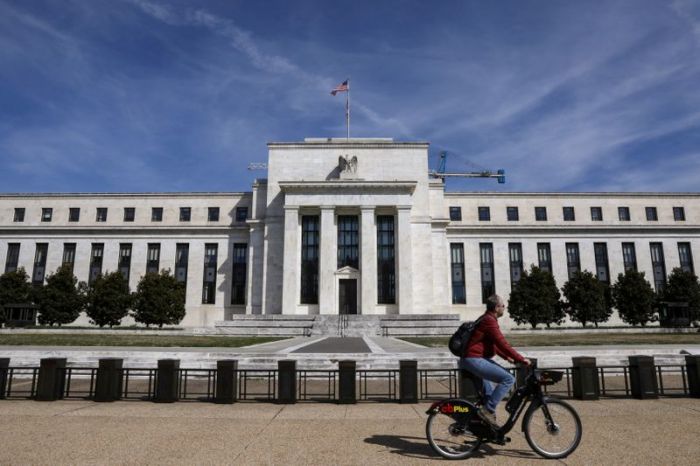SINGAPORE (Reuters) -Few are left to inoculate in wealthy Singapore after a vigorous campaign achieved a level of coverage envied by many nations battling the coronavirus pandemic, but a record surge in deaths and infections gives warning of risks that may still lie ahead.
Despite mask mandates, strict social curbs and COVID-19 booster doses available for over a month, infections in the Asian city-state’s latest outbreak, driven by the Delta variant, took the death toll to 280, up from 55 early in September.
“Singapore may potentially experience two to three epidemic waves as measures are increasingly relaxed,” said Alex Cook, a disease modelling expert at the National University of Singapore (NUS).
“Until then, deaths will probably continue to rise, unless many of the residual unvaccinated elders can be vaccinated or more get their booster shot.”
Cook expects the current wave to subside as the population builds up immunity, with most infections mild enough for recovery at home.
Singapore is one of several so-called COVID-zero countries that enforced some of the world’s strictest measures to hold infections and deaths far below the tallies elsewhere.
That was part of a strategy of waiting until a vast majority of its 5.5 million citizens had been vaccinated before gradually easing curbs and resuming more economic activity.
Now it is slowly re-opening its borders, expanding quarantine-free travel https://www.reuters.com/world/asia-pacific/singapore-pm-says-covid-19-new-normal-could-take-up-6-months-2021-10-09 to nearly a dozen countries. Australia and New Zealand have begun a similar transition, while China has yet to move ahead.
But the question authorities face is how to avert surges among older people and those with weak immune systems, particularly after the fast-spreading Delta, which arrived in Singapore this year, became the most dominant strain globally.
“If I were a policymaker in Australia, New Zealand or China, I’d be studying what has happened in Singapore,” Cook said.
Although 84% of Singapore residents have been fully vaccinated, most with doses from Pfizer/BioNTech or Moderna, the vaccines may not protect some of the most vulnerable.
Fully vaccinated people made up about 30% of deaths over the last month, most older than 60 with underlying medical woes, in line with studies https://www.reuters.com/world/middle-east/israeli-doctors-find-severe-covid-19-breakthrough-cases-mostly-older-sicker-2021-08-20 showing that vaccines offer less protection to the old and very ill.
But Singapore’s rolling seven-day average of 1.77 daily deaths per million people outstrips regional peers such as Japan with 0.14, South Korea with 0.28, and Australia with 0.58, the website Our World in Data shows.
It trails the U.S. figure of 4.96, and Britain’s 1.92.
Yet cumulative deaths as a share of population still rate among the world’s lowest, at 47.5 per million. That compares with figures of 2,825.7 in Brazil and 2,202.4 in the United States.
DELTA CHANGED EVERYTHING
Following an easing of curbs in August, Singapore’s latest wave has led to daily infections this week of nearly 4,000, or nearly three times higher than last year’s peak.
During most of the pandemic, the tough curbs held down infections, but their effectiveness against Delta seems to be waning, experts have said, though the high vaccination rate means nearly all cases are asymptomatic or mild.
“Most of our deaths come from the very small percentage of unvaccinated people,” said Dale Fisher, an expert on infectious diseases at the National University Hospital.
“The reality is that as COVID becomes endemic more and more people will get COVID.”
Singapore will extend some of its social-distancing curbs for about a month to ease pressure on the healthcare system, authorities said this week.
Now, with barely anyone older than 12 left to vaccinate, they are focusing on booster doses. More than 600,000 individuals have received one, as authorities target those older than 30, beyond the elderly and healthcare workers.
Measures just short of mandatory vaccinations, such as barring dining out and entry to shopping malls for the unvaccinated, helped push the number of those getting their first dose to 17,000 last week, up 54% from a week before.
“I do not think that easing of restrictions is going to have any impact on the case numbers,” said Paul Tambyah, president of the Asia Pacific Society of Clinical Microbiology and Infection.
“The key remains to reach the remaining unvaccinated seniors and protect the vulnerable.”
(Reporting by Aradhana Aravindan in Singapore; Editing by Miyoung Kim and Clarence Fernandez)

























